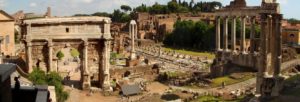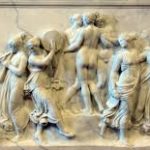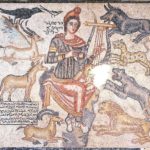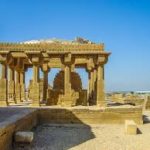Apart from these, there were several other Roman historians as follows:
Some Ancient Roman Historians are:
Diodorus Siculus
Diodorus Siculus was a Greek historian of the 1st century BC. His main body of work was the Bibliotheca, which consisted of forty books and was intended to be a universal history from mythological times to the 1st century BC. He employed a very simple and straightforward style of writing and relied heavily on written accounts for his information, most of which are now lost.

Dionysius of Halicarnassus
He was a Greek historian and critic living in Rome. His major work was Roman Antiquities, a history of Rome from its mythical beginnings until the first Punic war, consisting of 20 books.
Generally, he is considered to be a less reliable source than most of the other Roman Historians, but he does fill in the gaps in Livy’s accounts. Other works include: On Imitation, On Dinarchus, On Thucydides, and On the Arrangement of Words.
Pliny
Pliny the Elder, uncle of Pliny the Younger, wrote in the 1st century AD. He was an officer in the Roman military and he died in the eruption of Mount Vesuvius. His known works include Naturalis Historia, which is a collection of books on natural history, Bella Germanica, a 21 book history of the German wars which occurred during his lifetime, and a 31 book history of Julio-Claudian Rome.
Titus Flavius Josephus
Titus Flavius Josephus (born AD 39) was a Jewish historian and apologist. His works include The Jewish War (75 to 79), Jewish Antiquities (93), The Life (95) and Against Apion.
Thucydides and Polybius
He was influenced by Thucydides and Polybius and was endorsed by Emperor Titus. Though many critics thought that he was a traitor to his people, his writings show that he was a zealous defender of the Jewish faith and culture.
Appianus of Alexandria
Appianus of Alexandria wrote in Greek his Romaiken historian [Roman History], about half of which survives till date. This work was best known for its coverage of the Civil Wars of the late Republic. Appian addresses here the period roughly from 133 to 35 BC, i.e., from the reforms of Tiberius Gracchus to the death of Sextus Pompey.
Dio Cassius
Dio Cassius was a distinguished Greek senator. After establishing his political career, Dio Cassius began to write various literary works. His most famous and recognized work is called the Roman History, which consists of 80 books.
This work is dominated by the change from a Roman republic to a monarchy of emperors, which Dio Cassius believed was the only way Rome could have a stable government. Today, the only surviving portion of the Roman History is the part from 69 BC to AD 46.
Ammianus Marcellinus
In his 31 book history, Ammianus Marcellinus described the time from the reign of Nerva to the Battle of Adrianople, though the first thirteen books are lost. Bringing into the remaining books his own personal experiences in military services, his writing had a unique descriptive quality, of the geography, the events, and even the character of the actors. There is an active debate about whether the intent of the history was a continuation of Tacitus.
Zosimus
Zosimus was a pagan historian who wrote at around 500 AD a history of Rome to 410 in six books. Although he couldn’t be compared with Ammianus Marcellinus, his work was important for the events after 378.
Velleius Paterculus
Velleius Paterculus was a Roman historian who lived around 19 BC to after AD 30. He wrote Historiae Romanae, which is a summary of Roman history from the founding of the city to AD 30. Though almost all of his work is now missing, it is still a valuable source of the reigns of Augustus and Tiberius.
More info on- Roman historiography




